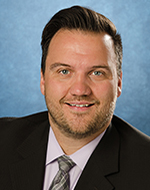Page Content
 School board trustee elections are on Monday, Oct. 16, and races are already heating up in many parts of the province.
School board trustee elections are on Monday, Oct. 16, and races are already heating up in many parts of the province.
Teachers are often asked by their friends and neighbours to provide some advice or insight on prospective candidates, and while teachers should feel free to engage in this democracy as citizens, they should also be cautious.
Teachers are employees of school boards and could face employment repercussions or code-of-conduct issues if they cross professional lines or upset a sitting or future trustee.
Act professionally and strike the right balance. Talk to your neighbours about issues and candidates’ views, but stop short of criticizing candidates on social media, for instance. Make a quiet donation or put up a lawn sign, but I wouldn’t volunteer to deliver the big speech at the candidate’s rally.
We encourage ATA locals to engage in a non-partisan way in school board elections and to try to get teachers and the public informed about issues and candidates. Our advice to locals is to use the elections as an opportunity to discuss important issues in education, to ask candidates what their positions are on these issues and then to share objectively the positions held by candidates.
This is good advice for teachers as well.
So what are the issues? What should we be talking and asking about? Here are my top five suggestions.
Education funding
In recent years, provincial funding for public education has been stabilized, but while funding has kept up with growth in student enrolment, most school board grants have not been adjusted enough to keep up with inflation. We need trustees who will advocate for adequate education funding from the province. At the same time, we need trustees who will work to ensure that the funding that school boards receive makes its way into classrooms and goes as far as possible to support student learning.
Curriculum and assessment
The current curriculum review is becoming fodder for some hyperbolic political speech, and asking trustees to speak on this will illuminate their ability to look at such issues reasonably. Has a candidate spent time researching and carefully considering the key questions about curriculum, or are they parroting less thoughtful talking points? Do candidates understand how curriculum works and the differences between curriculum and pedagogy? Do they respect the professional roles of teachers in developing curriculum, determining teaching methods and assessing student learning? What are their views on the role of standardized testing and on public assurance?
Classroom conditions
Alberta’s 2003 Commission on Learning targets for reduced class sizes have never been met. Average K – 3 class sizes have grown by more than 10 per cent since 2009, and currently only five of the 61 school boards in the province are meeting the established targets. At the same time, Alberta’s classrooms are twice as likely as other classrooms in the world to include students with special needs and students learning in a new language. Trustees should be aware of the unique demands that come with large and complex classrooms and should be advocating for strategies to reduce class size while ensuring that students and teachers are supported as much as possible with the resources available.
Indigenous education
Specific and targeted supports are needed to bridge the achievement and graduation gaps that exist between First Nations, Métis and Inuit students and others in the province. Canada’s Truth and Reconciliation Commission has also made a number of recommendations related to education to reverse the harmful legacy of residential schools in Canada. Trustee candidates should be aware of issues related to Indigenous education and prepared to work on improvements while also supporting efforts to ensure that all students learn about the histories, cultures and world views of Indigenous peoples.
Student safety and respect for diversity
Support for gay–straight alliances and LGBTQ+ students could become the ballot box issue in a number of jurisdictions. Some people still view these as contentious issues, in particular as they relate to parental notification. Lobby groups are already organizing around these elections and are working hard to promote candidates that may be obstructive on issues related to supports for LGBTQ+ students. While this issue, like curriculum, is becoming overly politicized, it would be good to know where candidates stand. ❚
I welcome your comments—contact me at jonathan.teghtmeyer@ata.ab.ca.
